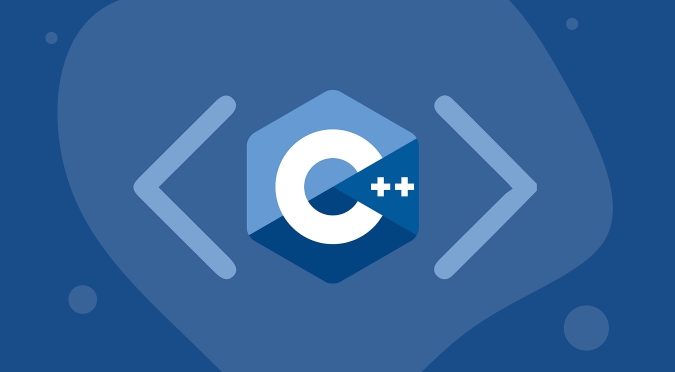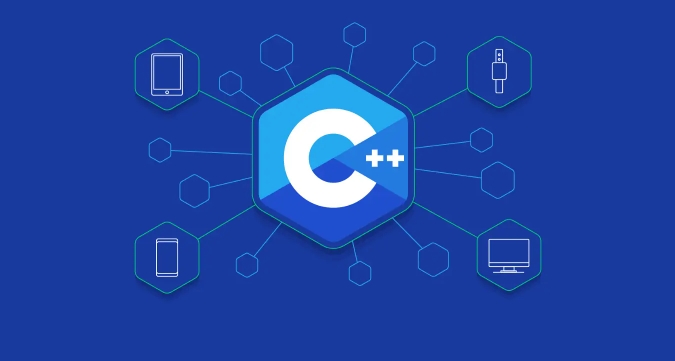The main differences between C and C are programming paradigms, standard libraries, memory management, and compatibility. 1.C is a process-oriented language that depends on functions and procedures, while C supports object-oriented programming, allowing the definition of classes and objects, and provides inheritance, polymorphism and packaging. 2.C is richer than C. It includes STL (such as vector, map and sorting algorithms) in addition to C's basic functions, which simplifies the implementation of data structures and algorithms; 3.C manually manages memory using malloc/free. In addition to new/delete, C also introduces RAII mechanisms and smart pointers (such as unique_ptr, shared_ptr) to reduce memory leakage; 4.C is designed as a superset of C, which can compile most C code, but type checks are stricter and requires the problem of name adaptation. When mixed programming, extern "C" is required to ensure compatibility.

C and C are both widely used programming languages, but they serve different purposes and have distinct characteristics. While C is a procedural language focused on performance and simplicity, C builds upon C by adding support for object-oriented programming and more advanced features.

1. Programming Paradigm
The most fundamental difference lies in the programming paradigm each language support.

- C follows a procedural programming model , which means it focuses on functions and procedures that operate on data. Programs are typically structured as a series of steps or routines.
- C , on the other hand, supports object-oriented programming (OOP) . This allows developers to create classes and objects, enabling concepts like inheritance, polymorphism, and encapsulation.
For example, in C , you can define a class like this:
class Car {
public:
void start() { cout << "Car started"; }
};In C, you'd achieve similar behavior using structs and functions, but without the built-in support for methods inside data structures.

2. Standard Library and Features
C comes with a much richer standard library compared to C.
- The C standard library provides basic functions such as input/output, string manipulation, and mathematical operations.
- The C standard library includes all of that plus additional components like the Standard Template Library (STL) — containers (like
vector,map), algorithms (sort,find), and iterators.
So while in C you might manage dynamic arrays manually using malloc and free , in C you can use std::vector which handles memory automatically.
3. Memory Management
Memory management is another key area where these two different.
- In C , you manually manage memory using functions like
malloc,calloc,realloc, andfree. - In C , while you can still do manual memory management using
newanddelete, the language also introduces RAII (Resource Acquisition Is Initialization) , which helps automate resource handling through object lives.
Additionally, C supports smart points like std::unique_ptr and std::shared_ptr , making memory leaks less likely.
4. Compilation and Compatibility
C was designed as an extension of C, so C can compile most C code , but there are some exceptions.
- Some C features (like variable-length arrays) are not part of standard C .
- C has stricter type checking. For instance, assigning a
void*pointer to another pointer type requires an explicit cast in C , whereas it's allowed implicitly in C.
Also, when mixing C and C code, you may need to use extern "C" in C to prevent name mangling and ensure compatibility.
These differences make C ideal for systems-level programming , like operating systems or embedded systems, where performance and control are critical. C , meanwhile, shines in applications that benefit from abstraction and modularity, such as game engines, large-scale software, and GUI-based programs.
Basically, if you want more control and minimal overhead, go with C. If you need better abstraction and modern language features, C is the way to go.
The above is the detailed content of What are the main differences between C and C ?. For more information, please follow other related articles on the PHP Chinese website!

Hot AI Tools

Undress AI Tool
Undress images for free

Undresser.AI Undress
AI-powered app for creating realistic nude photos

AI Clothes Remover
Online AI tool for removing clothes from photos.

Clothoff.io
AI clothes remover

Video Face Swap
Swap faces in any video effortlessly with our completely free AI face swap tool!

Hot Article

Hot Tools

Notepad++7.3.1
Easy-to-use and free code editor

SublimeText3 Chinese version
Chinese version, very easy to use

Zend Studio 13.0.1
Powerful PHP integrated development environment

Dreamweaver CS6
Visual web development tools

SublimeText3 Mac version
God-level code editing software (SublimeText3)

Hot Topics
 C Polymorphism : is function overloading a kind of polymorphism?
Jun 20, 2025 am 12:05 AM
C Polymorphism : is function overloading a kind of polymorphism?
Jun 20, 2025 am 12:05 AM
Yes, function overloading is a polymorphic form in C, specifically compile-time polymorphism. 1. Function overload allows multiple functions with the same name but different parameter lists. 2. The compiler decides which function to call at compile time based on the provided parameters. 3. Unlike runtime polymorphism, function overloading has no extra overhead at runtime, and is simple to implement but less flexible.
 What Are the Different Kinds of Polymorphism in C ? Explained
Jun 20, 2025 am 12:08 AM
What Are the Different Kinds of Polymorphism in C ? Explained
Jun 20, 2025 am 12:08 AM
C has two main polymorphic types: compile-time polymorphism and run-time polymorphism. 1. Compilation-time polymorphism is implemented through function overloading and templates, providing high efficiency but may lead to code bloating. 2. Runtime polymorphism is implemented through virtual functions and inheritance, providing flexibility but performance overhead.
 C : Is Polymorphism really useful?
Jun 20, 2025 am 12:01 AM
C : Is Polymorphism really useful?
Jun 20, 2025 am 12:01 AM
Yes, polymorphisms in C are very useful. 1) It provides flexibility to allow easy addition of new types; 2) promotes code reuse and reduces duplication; 3) simplifies maintenance, making the code easier to expand and adapt to changes. Despite performance and memory management challenges, its advantages are particularly significant in complex systems.
 C Destructors: Common Errors
Jun 20, 2025 am 12:12 AM
C Destructors: Common Errors
Jun 20, 2025 am 12:12 AM
C destructorscanleadtoseveralcommonerrors.Toavoidthem:1)Preventdoubledeletionbysettingpointerstonullptrorusingsmartpointers.2)Handleexceptionsindestructorsbycatchingandloggingthem.3)Usevirtualdestructorsinbaseclassesforproperpolymorphicdestruction.4
 Polymorphism in C : A Comprehensive Guide with Examples
Jun 21, 2025 am 12:11 AM
Polymorphism in C : A Comprehensive Guide with Examples
Jun 21, 2025 am 12:11 AM
Polymorphisms in C are divided into runtime polymorphisms and compile-time polymorphisms. 1. Runtime polymorphism is implemented through virtual functions, allowing the correct method to be called dynamically at runtime. 2. Compilation-time polymorphism is implemented through function overloading and templates, providing higher performance and flexibility.
 C tutorial for people who know Python
Jul 01, 2025 am 01:11 AM
C tutorial for people who know Python
Jul 01, 2025 am 01:11 AM
People who study Python transfer to C The most direct confusion is: Why can't you write like Python? Because C, although the syntax is more complex, provides underlying control capabilities and performance advantages. 1. In terms of syntax structure, C uses curly braces {} instead of indentation to organize code blocks, and variable types must be explicitly declared; 2. In terms of type system and memory management, C does not have an automatic garbage collection mechanism, and needs to manually manage memory and pay attention to releasing resources. RAII technology can assist resource management; 3. In functions and class definitions, C needs to explicitly access modifiers, constructors and destructors, and supports advanced functions such as operator overloading; 4. In terms of standard libraries, STL provides powerful containers and algorithms, but needs to adapt to generic programming ideas; 5
 What Are the Various Forms of Polymorphism in C ?
Jun 20, 2025 am 12:21 AM
What Are the Various Forms of Polymorphism in C ?
Jun 20, 2025 am 12:21 AM
C polymorphismincludescompile-time,runtime,andtemplatepolymorphism.1)Compile-timepolymorphismusesfunctionandoperatoroverloadingforefficiency.2)Runtimepolymorphismemploysvirtualfunctionsforflexibility.3)Templatepolymorphismenablesgenericprogrammingfo
 C Polymorphism: Coding Style
Jun 19, 2025 am 12:25 AM
C Polymorphism: Coding Style
Jun 19, 2025 am 12:25 AM
C polymorphismisuniqueduetoitscombinationofcompile-timeandruntimepolymorphism,allowingforbothefficiencyandflexibility.Toharnessitspowerstylishly:1)Usesmartpointerslikestd::unique_ptrformemorymanagement,2)Ensurebaseclasseshavevirtualdestructors,3)Emp






